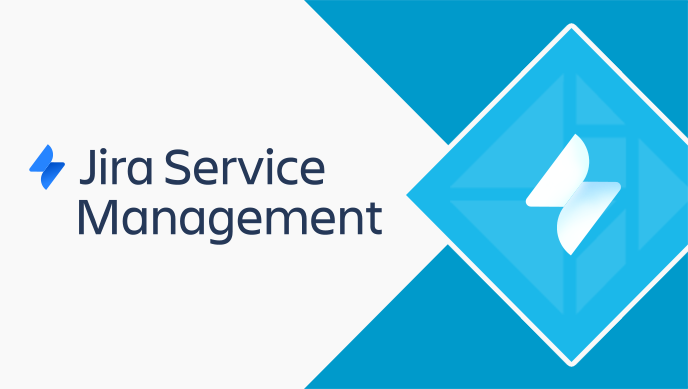Jira Service Management

Jira Service Management, formerly known as Jira Help desk, is an IT service management tool by Atlassian that allows your teams from different domains to collaborate at high velocity. It enables them to respond to the business changes quickly and deliver employee service experience faster. Jira Service Management makes it easier to classify service requests, incidents, assets, configuration management, problems, and changes by categorizing and prioritizing these requests, and keeps your team on track with their objectives.
Jira Service Management is built on top of the Jira platform and offers all the flexibility and scalability offered by Jira Software. Let us see some of the key features offered by JSM:
Request Management:
Managing and sourcing requests across all your teams is very important. Jira service management makes it easier by providing following capabilities:
- It helps you display various service categories through a simple, intuitive portal that makes it easy for your employees and customers to locate the desired service easily.
- You can set up dynamic request forms based on your team’s domain. JSM provide an easy to use low-code form builder that lets you customize your request forms easily. c. It also helps you set up dynamic SLAs for each of your tickets based on various factors like request category, elapsed time etc. You can also configure automated escalation rules to timely inform the related team members to prevent SLA breaches.
Incident Management:
- Centralize and filter alerts across all your monitoring, logging, and CI/CD tools to ensure your teams respond to issues quickly and easily.
- Keep your stakeholders and team members aware of all the incidents and their updates via preferred notification channels like SMS, email and mobile push notifications. c. Easily track and analyze all incident activities. Use templates to easily extract the resolution report with various resolution pointers.
Problem Management:
Resolving an incident is not enough until you know what has caused the problem. Jira Service Management allows you to group your incidents to create problem tickets. You can:
- Group and relate incident tickets to problem tickets to identify any recurring issues and determine problem scope.
- Run reports to reveal the number of incidents associated with a problem.
Change Management:
Change management is perhaps the most crucial part of IT service management. You get change requests from multiple sources, and they can impact multiple areas in your software. Therefore, it is very essential that the change management process is adequately monitored. Jira Service Management improves your change management process by:
- Allowing you to configure approval workflows based on type of change and associated risk. b. Allowing low risk change to automatically go to production by enabling GIT, Bitbucket or other CI/CD integrations.
- Allowing you to easily create, edit or reschedule change deployment durations from the native calendar.
Asset Management:
Another important aspect of IT service management is monitoring your assets, whether hardware or software, and their allocation within your teams. Jira Service management allows you to:
- Track the inventory of your assets. The allotee of assets and the duration of allotment. b. Maximize reusability of your assets by timely decommissioning them after desired usage. c. Create your own asset discovery schema that helps you automatically monitor and recover your network assets.
Knowledge Management:
Jira Service Management promotes knowledge management so that your team can manage most of the request easily and in self-help manner. You can:
- Place relevant articles where and when they’re needed so customers and employees can get details quickly.
- Manage content using the powerful Confluence editor and its macros directly from Jira Service Management.
- Offer search results from service projects, request types, and knowledge base articles throughout your website.
- Document changes, incident, and playbooks so your team can continuously learn and improve.
Configuration Management:
The premium and enterprise plans for Jira Service Management offers insights into configuration management of your product. This feature allows to:
- Observe dependencies between various components of your application, thus offering you a high-level visibility of all risk prone areas.
- Automate the attributes of different assets so that they can be upscaled and downscaled easily on demands.
- Automatically create issues when an unauthorized person changes or attempts to changes the asset attributes.
These are few of the common features offered in the Jira Service Management by Atlassian. Whether you are a start-up or an established software company, there is a plan for you. Atlassian offers free, standard, premium and enterprise plans. You can pick up a plan as per your needs and can scale as your demands keep growing.


